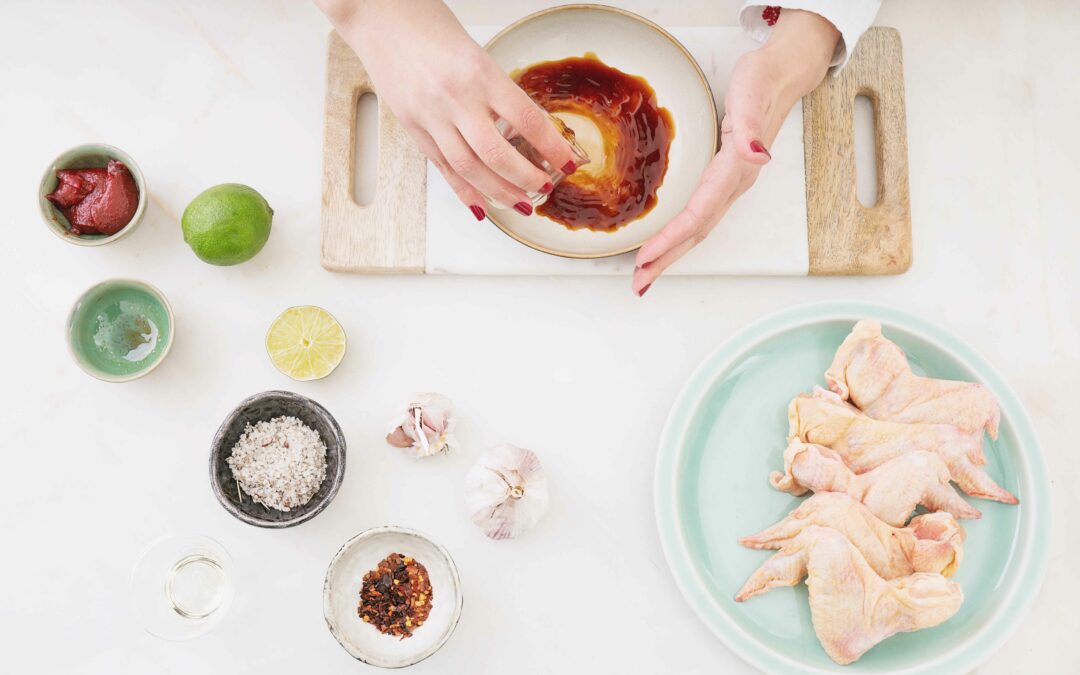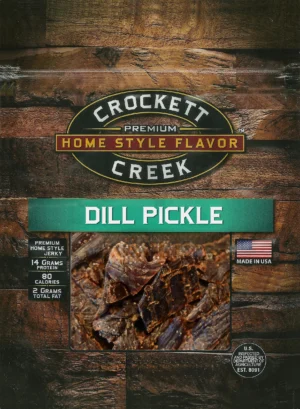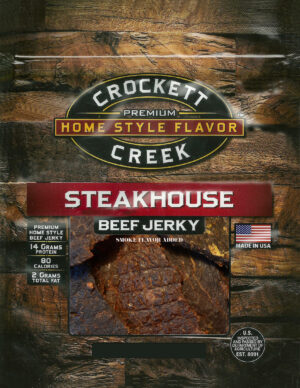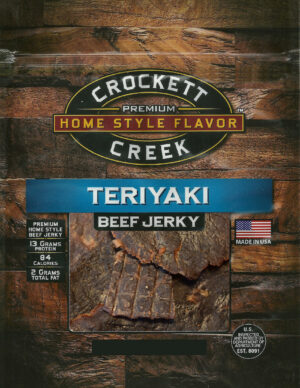Most people would agree they’re not big fans of bland, dull foods. But luckily, the food gods have an answer for that: marinade. Marinades can be used on a variety of foods from seafood to red meat and even on vegetables. However, there’s more to it than just splashing on some marinade, adding heat to cook through, and then eating. There’s a process and procedure, but when done correctly the results are *chef’s kiss*. Say goodbye to bland and hello to succulent steaks, flavorful seafood, tender chicken, zesty veggies, and all the mouth-watering goodness that proper marination brings.
What Is It, & Why Use Marinade?
To put it plain and simple, marinades are seasoned liquids that you use before cooking. Marinades often made up of a blend of simple ingredients, including acids and/or enzymes, that work together to enhance flavor and moisture to almost anything. Marinades have also been known to tenderize tougher meats, and a successful marinade has the right balance of acid, oil, and seasonings.
So, why use marinade? Because it can take your food to the next level of flavor. Marinade makes a dull, boring dish into a delicious, flavorful meal. Best part – it’s pretty easy to do.
Tips and Tricks for Letting It Marinate
There are a variety of benefits of marinating your food items before cooking them. These benefits include
- Enhanced Taste / Flavor – You can be as creative as you’d like here! There’s a marinade out there for every type of fare out there. With a shake of this and a splash of that, you’ll be on your way to flavor town.
- Boosted Texture – No more dry or hard-to-cut meats. Marinades soften leaner meats that can often be dry, as well as make tougher cuts of meat more flavorful.
- Increased Moisture / Tenderness – Marinating is an effective way to drive extra moisture into meat that can get too dry during cooking while also making the meat more tender. The same can be said for many vegetables as well.
And as for the process, marinating isn’t difficult, but it can require some pre-planning depending on what you’re wanting to marinate. Here are some tips on how to get the most from your marinade.
Types of Food to Marinate
It’s already been mentioned that marinade can transform dull food into a delight for your tastebuds, but what foods can you marinate? That’s an easy one – pretty much any meat, poultry, seafood, or veggie – including tofu.
Prepping Foods for Marination
When preparing your foods to marinate, size matters.
Marinating works best with thinner, flatter cuts of meat or substantial sized cubes or slices. This does depend on what you’re cooking, but a larger cut of meat such as a whole roast usually doesn’t fare well in the marinating process.
If you want to use smaller bits of meat or cook a shellfish such as shrimp, consider using skewers. Not only will this make the items easier to handle on the grill or stove top, but kabobs always take a plate to the next level!
Tools for Marinating Foods
You don’t have to have Gordon Ramsay’s kitchen tools to marinate food. In fact, you probably already own most, if not all, of the tools that prove helpful in the marination process.
- Resealable bags – zip-top bags make marinating easy as well as mess-free (or mess-low depending on you). It also ensures that the marinade gets direct contact with the food, and you can mix everything without getting your hands dirty.
- Skewers – we touched on skewers previously, but if you’re planning to grill your items skewers make the process easy. If you use bamboo skewers, don’t forget to soak them in water for at least 20 minutes to keep them from burning on the grill. Stainless steel skewers can be used immediately.
- Whisk – whether you make your own marinade or purchase one, you’ll want to ensure that the contents of the marinade are properly mixed before use – use a whisk to stir things up a bit.
- Bowl(s) – bowls of various sizes are always handy during the marination process, especially if you’re not planning to use a resealable bag. Make sure to use a bowl that is glass, stainless steel, or food-safe plastic. You’ll find out why in the next section.
- Baking dish – if you’re marinating something larger, a glass baking dish is the perfect thing to have on hand since it provides more space and surface area for the item.
How-to Marinate Meats Safely
More than likely, you’re aware that raw meat, pork, seafood, and poultry may contain harmful bacteria which would contaminate your marinade if not handled carefully. Here are some key precautions to take:
Marinate in the refrigerator
By keeping raw food cold during marinating, you can inhibit bacterial growth.
Don’t reuse a marinade
If you enjoy serving your marinade alongside your dishes, we’re all for it – but with an asterisk. *Don’t use marinade that has been in contact with uncooked meat, poultry, or seafood. If you want marinade for dipping, etc., make extra and store it in a separate container.
Pick Your Storage Container Wisely
Marinades that contain an acid base can react with some metals and pottery glazes. To be cautious, always marinate in glass or food-safe plastic.
How Long to Marinate Foods
You’ve chosen your marinade, and you’re all prepped to start the process. But how long do you really need to keep the food soaking? Answer is it depends on what you’re cooking. Meats can be marinated in the refrigerator anywhere from 30 minutes to overnight. However, seafood requires less time than poultry or other meats and usually is fully marinated within 2 hours. Vegetables should only marinate up to 10 minutes if smaller and/or sliced thinly. Larger items such as portobellos or egg plant can marinate as long as 30 minutes. But beware of over-marinating because it can cause a tougher texture or break down the food entirely making it mushier.
Best Ways to Cook Marinated Foods
Once you’ve prepped and marinated your foods, it’s time to get cooking! But what’s the best way to cook your marinated foods? That all depends on what you’re making and what you’re wanting out of the end result.
Grilling Marinated Foods
With the weather trending to consistently warmer temps, you may be itching to get your grill fired up. Grilling is a great way to cook up kabobs or steaks. The heat of a grill can create a nice caramelization of some marinades giving you a nice added texture. But be sure to watch the food carefully to keep it from becoming too crispy.
Broiling Marinated Foods
Ovens aren’t just for baking – try broiling your items. Broiling is perfect for seafood and vegetables because the direct heat adds that little bit of a delicate crunch.
Baking Marinated Foods
When baked alone, many foods may dry out and become tough. That’s where marinade comes in. By adding a marinade before baking, the result will have more moisture and tenderness.
Roasting Marinated Foods
Roasting marinated foods ensures that the flavor and moisture of the marinade comes through your food item. But pro tip: hold some marinated aside for basting during longer, slower roasting times.
To Make Your Own Marinade or Buy Premade
The time-old question: to make your own or buy it. Reality is … it depends, and there are pros and cons to each choice. What are you looking for taste wise? Is there something out there similar? Factors such as these can affect your decision. Store bought marinades can be a timesaver if you’re on the go since they are already made. But if you’re looking for a marinade option where you can control the amount of sugar and/or acidic portions, then make your own. However, keep in mind there are several healthy options when it comes to store-bought marinades.
Crank Up the Flavor with Crockett Creek Marinade
Are you ready to get marinating? You can have the home style taste of Crockett Creek delivered straight to your door with our Original Marinade. It’s all-natural and gluten-free, and the smoky, sweet, and salty flavor is guaranteed to up the ante of whatever you pair with it – chicken, seafood, beef, even veggies. You can even use it to make your own jerky at home! Don’t settle for mundane food, take your cooking to the next level with our Original Marinade. Best part? You can buy it online today.





